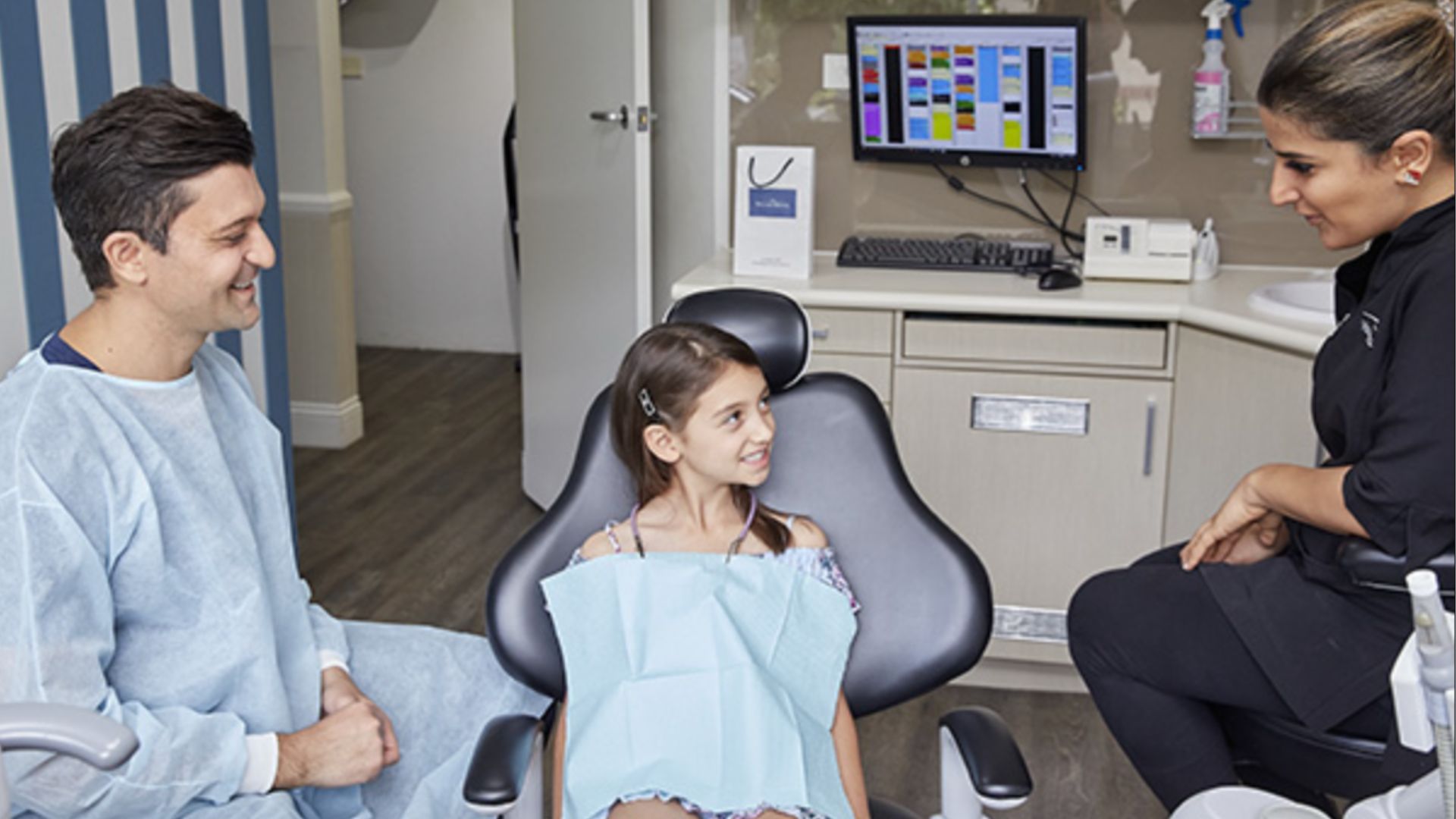How Often Should You Go to the Dentist?
Strong, healthy, clean teeth are core to our overall health and sense of self. It’s essential to look after them.
Regular visits to the dentist are vital for catching potential issues early, making treatment easier and maintaining your overall dental health.
During an oral health check-up, a dental practitioner examines the whole of your mouth, including your teeth, gums, lips, and tongue, to prevent the development of dental diseases like tooth decay and gum disease.
The frequency and nature of appointments can differ from patient to patient, depending on several factors, including age and medical history.
General Guidelines
The standard recommendation is to visit the dentist every six months.
Everyone should visit a dental practitioner from when a baby’s first teeth start showing or when they are 12 months old (whichever comes first) to old age.
However, your dentist will inform you if you require more frequent appointments for your teeth.

Outside regular appointments, you should contact your dental clinic at your earliest convenience if you experience any of the following:
- Your mouth is sore
- Your face is swollen
- You have trouble swallowing
- Your teeth become damaged
- Your gums bleed frequently
- You are concerned about your oral health
Factors Influencing Dental Visit Frequency
As previously mentioned, patients are usually advised to visit the dentist for a check-up every six months. However, certain cases may cause varying recommendations for appointment frequencies.
- If your oral hygiene habits need improvement. Perhaps you have a history of cavities, gum disease, or oral health conditions. Likewise, those with a higher propensity for plaque and tartar build-up might need to see a dental hygienist more regularly.
- Medical conditions that negatively impact the immune system can increase susceptibility to oral infections. People with diabetes, autoimmune disorders, or HIV/AIDS may require more frequent check-ups.
- Older individuals may experience receding gums, dry mouth and tooth sensitivity and, therefore, might require more regular dental treatments to protect their oral health.
- Those who smoke or maintain a high-sugar, high-acidic diet have a significantly higher chance of developing gum disease, tooth decay and oral cancer and thus may be recommended more frequent visits to the dentist. This also goes for diets lacking essential vitamins and minerals, which weaken your teeth and gums and leave you more vulnerable to disease.
- Pregnant women experience hormonal changes that increase the likelihood of gum inflammation. Furthermore, the frequent vomiting experienced during pregnancy may cause tooth erosion. To protect both mother and baby, visits to the dentist at the beginning and during pregnancy are recommended for pregnant women. Research suggests that poor dental health during pregnancy may be associated with premature births or babies born with a low weight.

Benefits of Regular Dental Visits
Overall, regular visits to the dentist help prevent dental issues through early detection. While performing a check-up, a dentist will search for signs of tooth decay, worn or damaged prosthetics, gum disease (gingivitis or periodontitis), loose fillings, oral cancer, teeth grinding (bruxism), and dry mouth. From there, they can give a diagnosis and suggest actions to treat any such condition.
This also includes receiving professional cleaning. When plaque (the sticky film of food debris and bacteria that constantly coats your teeth) hardens into tartar, it can not be cleaned with merely a toothbrush or floss. Similarly, consuming too many sweet or acidic foods and drinks causes decay and enamel erosion, which requires professional cleaning to mitigate the effects.
Thus, a dental professional can provide information and treatment advice specific to you about the best way to practice good dental hygiene and reduce the risk of developing oral diseases.
What to Expect During a Dental Visit
A typical dental examination is safe and routine. A dental practitioner will first recap your dental and medical history, including previous dental work, medications, and allergies. Then, they’ll look inside your mouth for any signs of decay, damage or a cavity.
During this period, your dentist will also examine how your teeth fit together. Usually your dentist will take an X-ray of your teeth & jaw bone to assess for such things as tooth decay, dental infections, jaw bone damage, teeth that haven’t come through yet, or even severe health issues like tumors.
Generally, you will receive preventative care treatment, including fluoride, scale & polishing, fillings (if needed), and advice on tooth brushing and flossing. A dentist aims to help you maintain healthy teeth and gums through hygiene habits and diets.
Schedule Your Appointment Today
Take control of your dental health at KB Village Dental. Dr Evan Soulos, our principal dentist, is dedicated to providing comprehensive dental care and personalised recommendations on a range of services: general dentistry, check-ups, oral hygiene, teeth whitening and cosmetic improvements.
Book an appointment online or over the phone at (02) 8999 4349, or visit us at our Kirribilli clinic for a smile you can be proud of.

